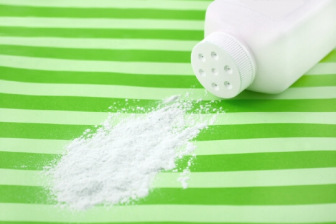Talc Verdict Nixed as Fallout Continues After Supremes Court Ruling
U.S. Supreme Court Rejects J&J Appeal of $2 Billion Talc Verdict
Legislation & Litigation
- Written by Tim Povtak
Reading Time: 4 mins
Publication Date: 06/02/2021

The U.S. Supreme Court rejected a request June 1 from Johnson & Johnson to consider overturning a $2.1 billion award to 22 women who blamed the company's asbestos-contaminated talcum powder products for causing ovarian cancer.
With the Supreme Court declining to consider it, a Missouri state court ruling from 2018 that originally awarded $4.69 billion remains in place. A Missouri court of appeals reduced the award in 2020 to $2.1 billion, but also rejected a J&J effort to dismiss the jury verdict. The appeal did not involve the question of whether the products caused cancer.
Johnson & Johnson wanted the Supreme Court to review its argument that the lower courts unfairly combined the 22 cases, which were from several different states with widely different cancer severities and a varied extent of product usage.
"The matters that were before the court are related to legal procedure, and not safety," J&J said in a prepared statement.
The court's action, the statement said, "leaves unresolved significant legal questions that state and federal courts will continue to face on legal issues related to due process rights and personal jurisdiction."
Attorneys for J&J argued that some of the women had family or genetic dispositions for cancer, while others did not. Attorneys for the women maintained that consolidating plaintiffs in product liability cases is common to help preserve court resources.
In November, the Missouri Supreme Court also declined to hear the J&J appeal.
Asbestos Can Contaminate Talc Products
Women in the lawsuit all said they used either Johnson & Johnson's iconic baby powder or Shower to Shower Shimmer Effects, both of which included contaminated talcum powder.
The issue of cancer-causing talcum powder stems from asbestos, a known carcinogen that can lead to a variety of serious health issues, including malignant mesothelioma.
Talc and asbestos, both naturally occurring minerals, can form in close proximity to each other near the Earth's surface. Separating the two during the mining process has been an issue for many years.
Heralded as one of the softest, moisture-absorbing minerals in the world, talc is used in many consumer products. Asbestos, which has not been mined in the U.S. for more than two decades, was once used ubiquitously in construction products and is known for its heat resistance and tensile strength. Unfortunately, it also is toxic.

Get Connected to an Asbestos Lawyer
If you were exposed to asbestos while using talc, we can help match you with an attorney. Get the compensation you deserve.
J&J Ruling Could Impact Mesothelioma Cases
In earlier court papers, Johnson & Johnson said it is facing more than 20,000 additional cases involving contaminated talc. It also said many of them could be affected by the outcome of this well-chronicled case in Missouri.
Although the overwhelming majority of talc cases are related to ovarian cancer, a small number involve mesothelioma, which is caused almost exclusively by asbestos fibers.
J&J was ordered to pay $25.9 million in April 2018 by a jury in New Jersey state court, which was the first ruling ever against the company involving mesothelioma and contaminated talc. In 2019, a Los Angeles Superior Court awarded $21.7 million to a woman alleging that 20 years of using Johnson's Baby Power led to her mesothelioma.
Tuesday's U.S. Supreme Court rejection was likely not a surprise to J&J. According to a regulatory filing earlier this year with the Securities and Exchange Commission, J&J set aside $3.9 billion in 2021 for future talc-related litigation.
While the company continues to insist that its products are safe to use and do not cause cancer, it discontinued selling talc-based Johnson's Baby Powder in Canada and the U.S. Cornstarch is now used instead of talc in the product.
Talc Debate Likely to Continue
Debate over contaminated talc often stems from various testing methods of talc and the interpretation of those results.
In 2020, the U.S. Food and Drug Administration announced that traces of asbestos were found in nine of 52 cosmetic products it tested during a year-long study.
Yet an earlier U.S.-led analysis of 250,000 women found no conclusive evidence linking baby powder with ovarian cancer. This led to an editorial in the Journal of the American Medical Association calling those findings "overall reassuring."
The American Cancer Society also has written that "it is not clear if consumer products containing talcum powder increase cancer risk."
The Supreme Court's decision to not hear the J&J appeal was rendered without two of the justices participating. Justice Brett Kavanaugh, whose father was a longtime lobbyist in the cosmetics industry, and Justice Samuel Alito, who owns J&J stock, recused themselves.
As is usual practice, the Supreme Court gave no explanation for its decision not to hear the appeal.
Access Trust Funds, Grants & Compensation for Mesothelioma
Get Financial Assistance
Source: https://www.asbestos.com/news/2021/06/02/johnson-johnson-supreme-court-talc/
0 Response to "Talc Verdict Nixed as Fallout Continues After Supremes Court Ruling"
Post a Comment